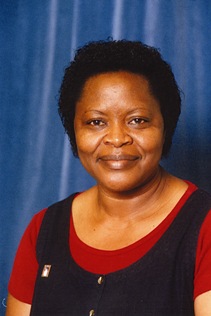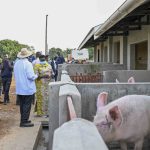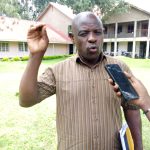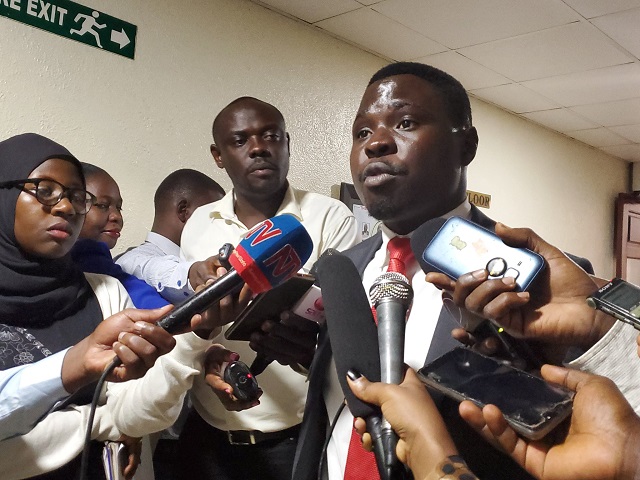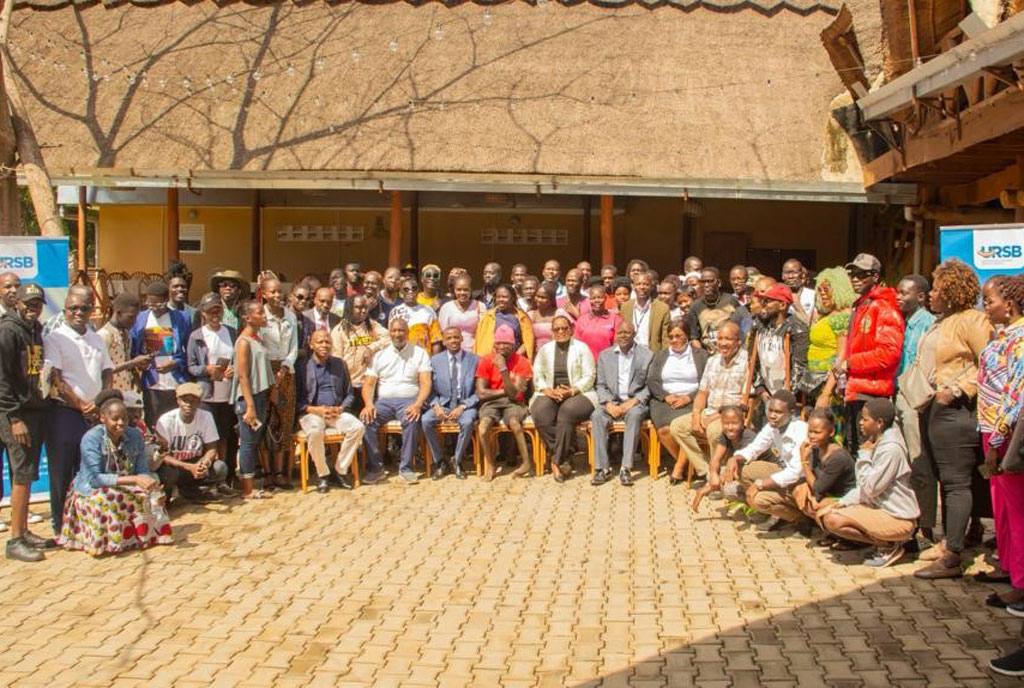The news of her appointment as the envoy for the Bamasaba chapter in the USA and Canada by the leadership of the Bamasaba Cultural Institution was relayed some time ago, but there is no harm in stating it here again, especially for those who may have missed out on such cultural news.
As the Bamasaba Ambassador, Hon. Prof. Florence Wakoko is an embodiment of the cultural and development aspirations of her people, both the Bamasaba people of Uganda and Kenya. She truly occupies a very central position in the leadership of Bukuka for the Bamasaba people.
I am very much aware of the fact that, unlike government-appointed envoys who need formal accreditation, she is a cultural ambassador who may not necessarily go through all the formalities and protocols. She will not present credentials to any head of state, but can safely deal with cultural-related matters whenever they arise. She can petition UNESCO or the UN on cultural aspects touching on Bamasaba culture.
The Bamasaba people are a major tribe in Uganda and are closely connected with their cousins, the Bamasaba of Kenya. The geographical feature that separates the Bamasaba of Kenya and Uganda is River Lwakaka and nothing else. However, River Lwakaka should not be construed as a dividing feature in the real sense of the word, as many of us don’t even notice it while passing by. It should perhaps be seen as a river with pathogen-free water consumed by two fraternal communities.
If River Lwakaka were to become an obstacle to the unity of our people, the Bamasaba people of the two countries could consider diverting it elsewhere so that our people may live freely as one community.
The Bamasaba of Kenya and Uganda form a single, larger tribe of over 10 million people. Our food crops and elementary diets are similar. Imbalu (circumcision) is a central passage to adulthood, and we share names and other ritualistic practices. As a tribe, we are people of medium complexion and stout in nature not easily described by Anglo-Saxon or Cushitic features. Perhaps we make no apologies for the lack of such features. We are Africans, and above all, we are Bamasaba people. The major cultural rite is circumcision for the male child, with a cultural rite for the girl child—except for a few lessons on etiquette and decorum.
Masabaland is famous for its tall hills, and recently, it has begun to attract notoriety due to human loss from landslides and mudslides. Masabaland has four major rivers running from various angles: the Manafwa River, with its main catchment area from Mt. Elgon via Bududa under the Mbuya clan, flowing into Lake Kyoga via Mpologoma Swamp; Solokho River, located in Sironko under Mwambu, which also connects to Lake Kyoga; Lwakaka River, which provides commercial and domestic water to the Bamasaba of both Kenya and Uganda; and the Wuukha River, located in Bududa (Nametsi). The Wuukha River is one of the most silent killers, more lethal than any Ugandan lake. It has no mercy and no survivors to its name. It once swallowed a pregnant mother and her entire family, and has no record of survivors. River Wuukha is subsumed by the Manafwa River somewhere around Bulucheke after their confluence. By the time you reach Bubulo, it is fully subsumed into the Manafwa River. Many casualties in Bududa are wrongly attributed to River Manafwa. True credit, sadly, should go to River Wuukha.
Many of the daughters of Masabaland are trending globally in academics and philanthropy, and have made critical academic inroads both globally and locally. Top on that list is Prof. Florence Wakoko, an Ohio-trained professor with over four degrees to her name. Prof. Florence, as many of her learners and closer academic contemporaries refer to her, is a very committed Christian. She won’t ingest any meal, no matter how precious it is, without giving thanks to the Lord. She is passionate about issues of welfare, development, academics, and Christianity.
In her brief memoir titled My Early Years in the United States and Where I Am Today, Florence tries to bring the world up to speed on her contributions to both American and African communities, ranging from poverty eradication, microfinancing, and education, among other efforts to uplift the welfare of mankind and womankind. Florence is a pragmatic utilitarian and universalist, but in this, she is not a singular promoter. Her longtime soulmate and matrimonial partner, Mr. Studstil, shares and practices the same philosophical beliefs on universalism. Both are very committed promoters of this concept. The utilitarian school of thought advocates for the empowerment of mankind through financial welfare, and the Studstil family’s commitment to advancing the happiness of humanity resonates well with the old adage: “What is sauce for the goose is also sauce for the gander.” Both spouses are committed to helping mankind live happier lives through various initiatives, such as welfare support.
Welfare is a state of mind that reflects human happiness, and the measuring rod of welfare is usually money. Dr. Florence is over 6,000 nautical miles from her birthplace, but she is passionate about the issues of Africa, more so than the Africans she left behind. No African can write a project concept aimed at empowering impoverished communities elsewhere in the world except their own, but Florence has helped communities beyond Africa. Her commitment to the unity and development of Masabaland is beyond dispute.
In her memoirs, which may not be a definitive account of all the major events she encountered—from her student life at Tororo Girls, Nabinsusa, and eventually to Makerere University as a student leader, and later as a lecturer Florence shares a lot about life outside America as a younger lecturer and academician. General Colin Powell, who served as an advisor to U.S. Presidents Nixon and Bush, and later as Chief of Staff, had reservations about autobiographies, believing they were often self-serving. However, Prof. Florence has attempted to comprehensively share her American story in a very captivating way, offering insights that go beyond herself.
Following in the footsteps of British political and economic thinkers like Jeremy Bentham—who was an earlier advocate of utilitarian philosophy Prof. Florence, like the British propagators of this concept, displays enormous displeasure for any conditions that cause unhappiness or undermine the quality of life. She is determined to eliminate any hardships that hinder human happiness, such as poverty, inequality, and illiteracy. One could argue that she is even more pragmatic than Bentham himself, as there is no evidence to suggest that Bentham stretched out a hand to uplift his fellow Britons in the same way Prof. Florence is doing today. Bentham developed this concept around 300 years ago to address various issues in medieval Britain. The central focus of utilitarian thought is ensuring that the majority of people live in happiness the happiness of the greatest number of people. Many utilitarians are willing to sacrifice their own happiness for the benefit of others similar to the Christian belief where Jesus sacrificed himself for the majority. Prof. Florence and her husband have made this school of thought more pragmatic, occupying a central place in the hearts of millions around the world.
The Bamasaba Cultural Institution has entrusted Prof. Florence with one of its signature projects: establishing a television and radio station to serve the cultural institution. To realize this, resources must be raised, and Prof. Florence is deeply involved in this cultural assignment on behalf of her native community. She is our Ambassador-at-Large, cultural envoy, and agent, and will mobilize the Bamasaba and friends of the Bamasaba people in the United States, Canada, and beyond to ensure that this cultural project takes shape.
Florence has also trained American students during her tenure as a university professor, and she will use her extensive network within the academic community including alumni from the various universities where she has taught to support the project. She has a rich network of friends, political actors in the United States, and church networks, which will ease her work on behalf of the Bamasaba people.
Florence is a trained sociologist and previously served as an adjunct head of the Department of Criminal Justice at Columbus State University in the United States. She has peer-reviewed research and currently serves as an associate professor and head of the Department of Sociology and Languages at Ohio State University, where she and her students are concluding their semester this December. She has earned numerous accolades in sociology and criminology. As an academic researcher in these fields, Prof. Florence has made significant global contributions, particularly in agriculture, education, women’s empowerment, and health.
The Tanzanian community has praised her for her contributions, noting that postgraduate students at Sokoine University in Tanzania cannot complete their master’s or PhD theses without citing some of Prof. Florence’s writings. To score highly at Sokoine, it is essential to reference Prof. Florence, as one postgraduate student recently posted on his Twitter handle.
Those who studied with her at Tororo Girls and Nabinsusa Girls, where she used her oratory skills to win fellow students’ votes as head girl at both schools, remember her fondly as a bright and natural leader. When she joined Makerere University, she defeated many competitors to become the chairperson of Africa Hall, many of whom are now ministers in President Museveni’s government. After her brief stint in student politics, many expected her to enter mainstream politics, which would have placed her among prominent figures like Hon. Kadaga, Winnie Byanyima, Hillary Clinton, German Chancellor Angela Merkel, and Vice President Kamala Harris. However, she chose academia, eventually earning her PhD 21 years ago with an impressive doctoral thesis titled The Role of Microfinance in the Empowerment of Women in Uganda.
The television and radio stations to be established by Umukuka III, Jude Mike Mudoma, and his leadership are expected to cost hundreds of millions. We expect the Bamasaba and their friends in the diaspora to take the lead in supporting this project with utmost faith. In preparation for the radio and television station, Prof. Florence has held preparatory meetings to ensure the project takes shape. We must thank the Bamasaba in the diaspora for their commitment to supporting Bukuka, and we rely on them immensely for the realization of this project.
Steven Masiga is a cultural and legal writer from Mbale. Tel: 0782231577.

